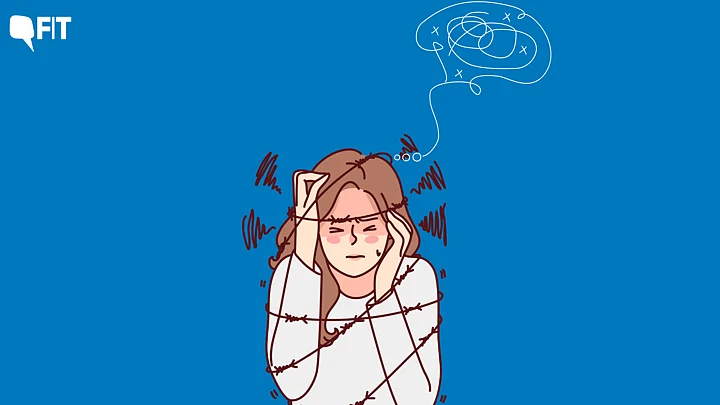Have you ever found yourself in a situation where you are going for an examination or an interview for a job and you think you have put everything at stake and assume that you won't get past this interview, hence not get the job?
You further extrapolate it to mean that you are good for nothing, and your family will be on the roads, and you will never be financially stable in life. This scenario defines what is called as catastrophising.
Essentially, it involves believing that you’re in a worse situation than you really are, and you start assuming the worst outcome of that situation. At a heightened or an exaggerated level, you start anticipating the worst outcome.
What one fails to acknowledge is that failing an exam, or an interview is not a measure of your ability, and it does not mean that you would never be able to land yourself in a job.
Origins of Catastrophising
According to Sharon Melnick, PhD, a renowned psychologist,
“It’s common for people with high control needs, often with perfectionistic tendencies, to catastrophise. They put a lot of pressure on themselves to achieve an outcome that will reflect favourably on them while unconsciously terrified that if the outcome isn’t perfect, they will be found blameworthy, and ultimately, unworthy.”
Going into the past history of some people, who catastrophise, it is seen that their fear is rooted in real experience. Past encounters of trauma had real consequences, so the imaginary but dreaded outcomes don’t appear entirely unfounded.
In several cases, their childhood may have been traumatic, especially when the parents are extremely demanding and would not hesitate to punish the child for a less-than-perfect performance, in any sphere, be it school grades or any of the cocurricular activities.
What gets etched in their mind is, “You’re only valuable when you’re perfect.”
Therefore, people in professions where less than perfect outcome is not acceptable, for example, doctors, pilots, or others, on whom someone’s life depends, are more likely to catastrophise, for obvious reasons.
On the flip side, those whose life is being talked about, also catastrophise for the same reasons. This has been observed more so, post COVID-19.
While 70-80 percent of the normal population would have negative thoughts at times, there appears to be some genetic predisposition for catastrophising tendencies in people who have anxiety and depressive illnesses, and vice versa.
But upbringing and other environmental factors play a significant role. In people who catastrophise, the assumption that the worst will always happen leads to fear and hopelessness. A sense of helplessness pervades which can lead to depression.
Some association has been found between chronic pain, like fibromyalgia and catastrophising, one leading to the other. Associated fatigue adds to the complexity of symptoms. However, the exact cause and effect relationship has not been established.
How To Manage
The good thing is that managing catastrophising in itself, is not a hopeless situation. Nothing characterises the adage, ‘A sound mind in a sound body’, more than treatment of catastrophising. Therefore, the approach has to be multi-pronged.
One must lay stress on keeping the body fit by doing physical exercises and workouts. Breathing exercises like pranayama, not only help keep the body fit but also quieten the ‘mental chatter’.
As seen often, catastrophising involves irrational and exaggerated thinking. Hence, as a first step, one should look for any evidence to support the catastrophic outcome that was being imagined.
If there is none found, there may be a modicum of relief. Very importantly, the likelihood of the worst-case scenario actually happening must be assessed by considering hard facts at hand and probabilities based on these facts.
One has to make an effort to rationalise the thoughts with a cool mind thereafter. Once you see reason, the anxiety and associated fear which leads to catastrophising, tends to dissipate.
Mindfulness, relaxation techniques and guided meditation like yog-nidra, help in getting over the fears and anxiety, thereby focussing the mind on finding the solutions to problems at hand. These mindfulness techniques have been found especially helpful in chronic pain and associated tendencies to catastrophise.
However, in advanced cases of catastrophising, one may need a therapist’s help who may give what is called as Cognitive Behaviour Therapy (CBT) or some other forms of therapy.
CBT tries to address your thinking and behavioural patterns. In the case of catastrophising, a therapist might help you recognize irrational thoughts and replace them with rational ones. In some cases, drug therapy may also be required but one should resort to this if all else fails.
Catastrophising is actually a symptom and not a disease perse. However, it can affect your quality of life. Certainly, it is not a hopeless situation as there are many ways to manage it.
If you think you have a tendency to catastrophise, talk to a trusted friend, an understanding sibling or a parent, but if need be, do not hesitate to consult a therapist.
(Dr Ashwini Setya is the Adjunct Professor in Gastroenterology, ESIC Medical College, Faridabad, and Senior Consultant with Medanta Institute of Digestive & Hepatobiliary Sciences, New Delhi. Dr Setya is also an advisor and consultant in Medical Law and Ethics. He can be reached at ashwini.setya@gmail.com. This is an opinion piece, and the views expressed are the author's own. The Quint neither endorses nor is responsible for them.)

